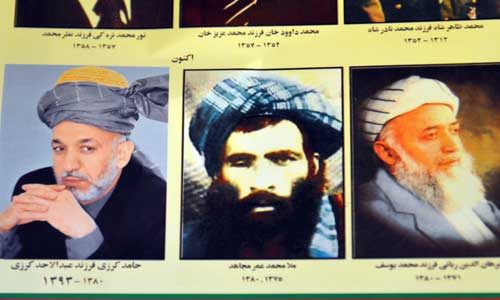The Afghan Taliban’s Supreme Council was not consulted over the election of a new leader following the death of founder Mullah Omar, reports BBC.
Taliban sources said on Thursday that his deputy Mullah Akhtar Mansour had been chosen to head the militant group, BBC said it has learnt.
But a spokesman told the British media he had not been appointed “by all Taliban”, which was against Sharia law.
He said the council would now hold a meeting to elect a new leader.
Some Taliban figures have accused pro-Pakistani circles of imposing Mullah Mansour, who is known for his support for peace talks, on them.
At least one Taliban faction would have preferred Mullah Omar’s son to succeed him.
Taliban spokesman Mullah Abdul Manan Niazi said those who elected Mullah Mansour had not followed the rules.
“According to Islamic rule and principles, when a leader dies, a Shura (council) is called, then its leader is appointed,” he added.
Mullah Omar led the movement for some 20 years. His death was confirmed by the Taliban on Thursday.
A statement did not say where, when or how he died, only that it was from an illness and that he had remained in Afghanistan since the 2001 US invasion.
Finding a unifying leader like Mullah Omar will be almost impossible for the Taliban, so a split is likely.
Mullah Mansour’s supporters have dispelled reports that military commander Qaum Zakir is opposing his election.
Zakir is an ex-Guantanamo prisoner, who has a base of support in Helmand province and will play a crucial role in the group’s future.
The side which manages to gains the support of military commanders will win the majority share of Mullah Omar’s movement.
Taliban sources said on Thursday that his deputy Mullah Akhtar Mansour had been chosen to head the militant group, BBC said it has learnt.
But a spokesman told the British media he had not been appointed “by all Taliban”, which was against Sharia law.
He said the council would now hold a meeting to elect a new leader.
Some Taliban figures have accused pro-Pakistani circles of imposing Mullah Mansour, who is known for his support for peace talks, on them.
At least one Taliban faction would have preferred Mullah Omar’s son to succeed him.
Taliban spokesman Mullah Abdul Manan Niazi said those who elected Mullah Mansour had not followed the rules.
“According to Islamic rule and principles, when a leader dies, a Shura (council) is called, then its leader is appointed,” he added.
Mullah Omar led the movement for some 20 years. His death was confirmed by the Taliban on Thursday.
A statement did not say where, when or how he died, only that it was from an illness and that he had remained in Afghanistan since the 2001 US invasion.
Finding a unifying leader like Mullah Omar will be almost impossible for the Taliban, so a split is likely.
Mullah Mansour’s supporters have dispelled reports that military commander Qaum Zakir is opposing his election.
Zakir is an ex-Guantanamo prisoner, who has a base of support in Helmand province and will play a crucial role in the group’s future.
The side which manages to gains the support of military commanders will win the majority share of Mullah Omar’s movement.
Source: New Age









